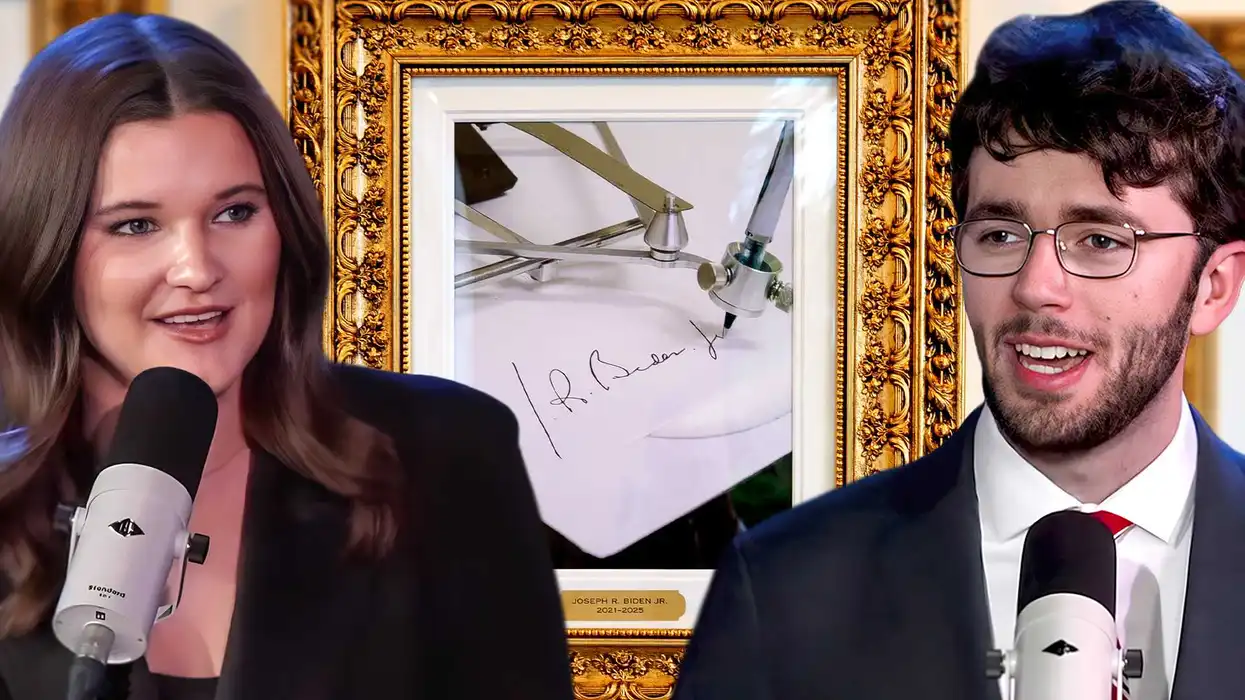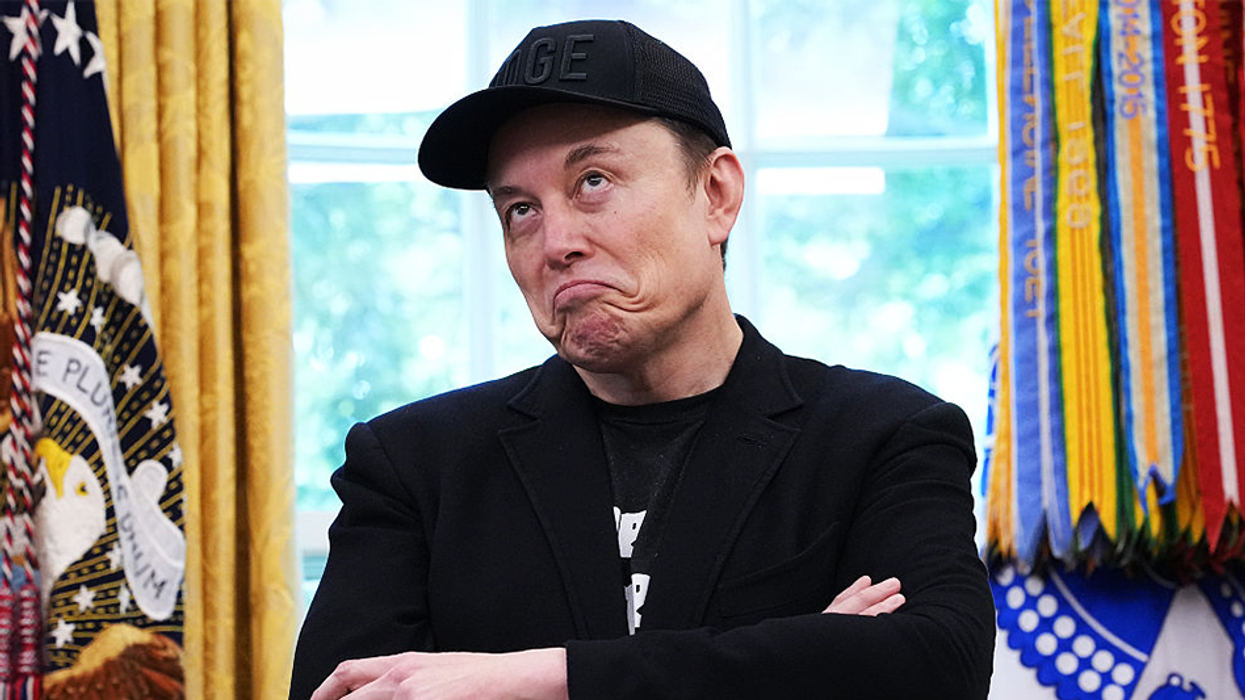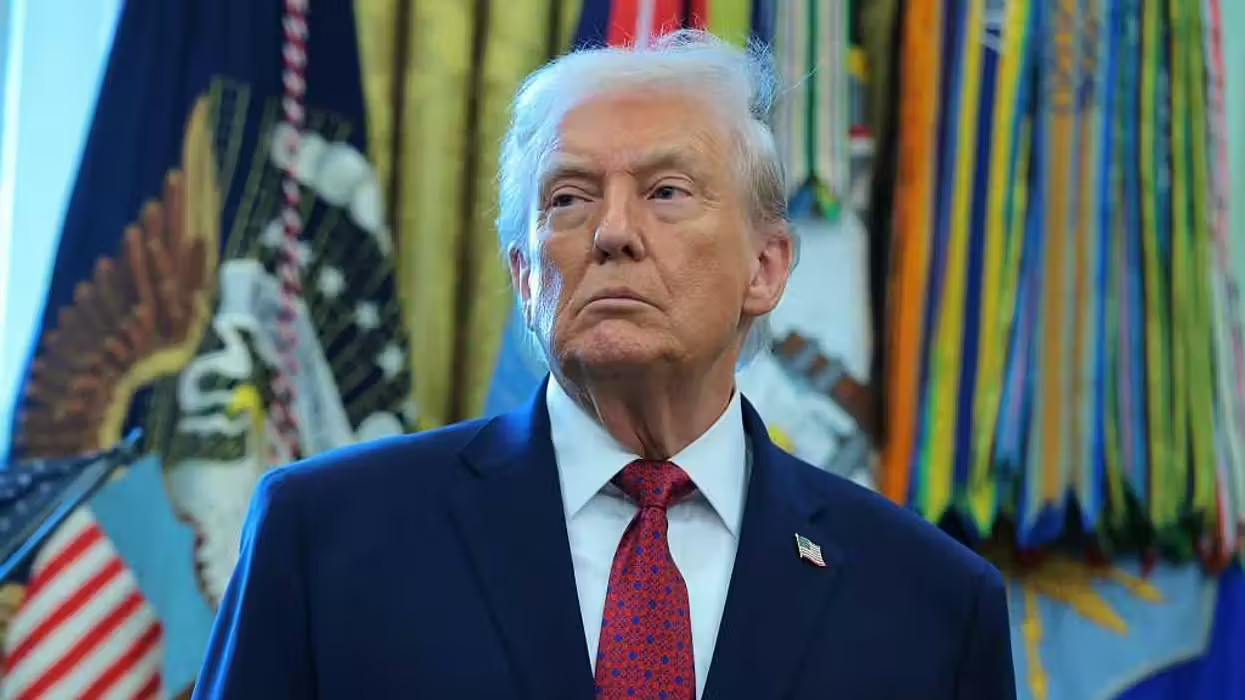Apple's event at its California headquarters Tuesday confirmed many rumors that have been building in the past months and weeks. One of them is a futuristic fingerprint identification system, which has been concerning some, especially in light of the National Security Agency's collection of data from cellphone companies.
 The 5S features a fingerprint sensor, has an upgraded camera, and contains an A7 chip (Photo by Justin Sullivan/Getty Images)
The 5S features a fingerprint sensor, has an upgraded camera, and contains an A7 chip (Photo by Justin Sullivan/Getty Images)
In introducing two new iPhone models at the event, Apple unveiled the ability to unlock the new iPhone 5S with a feature called TouchID.
Phil Schiller, senior vice president of worldwide marketing at Apple, said TouchID reads fingerprints at a "detailed level," calling it "fun and easy" to teach the 5S about your fingerprint.
But Apple alleviated some privacy fears saying the fingerprints would not be stored on its servers, meaning it would not have access to the biometric code even if the NSA were to request it of them.
The point of fingerprint identification is to add a level of heightened security, but recent revelations that the NSA could access contacts, call lists, SMS traffic, notes and location data had some concerned about over putting this biometric data on a mobile device.
"Of course, Apple is unlikely to want to get involved in this business itself, but with doubts raised about just how closely tech firms are cooperating (or should we say, bending over backwards) with agencies like the NSA, anyone concerned about a dystopian future is likely to be wary of this," Mike Wheatley for the computer science blog Silicon Angle wrote of the issue ahead of Apple's announcement. "Apple hasn’t said what it will do with this data, but it might decided to keep its user’s fingerprints in some kind of central repository – which could well mean that the NSA has unrestricted access to them."
With Apple's announcement refusing this central database idea, privacy advocates might be wiping their brows. But as MacWorld pointed out, the security of a fingerprint identification system isn't technically foolproof when it comes to thieves:
Of more practical concern is whether thieves will find ways to extract serviceable fingerprints from their victims. After all, the hosts of the popular reality showMythBusters were famously able to defeat a biometric lock using nothing more than a photocopy of the victim’s fingerprint lifted from a CD. Other hacks have involved using a piece of gummy candy to duplicate a fingerprint.
And since the presence of the entire user isn’t necessary to scan a print, some people worry that criminals might separate users of the new iPhone from their appendages in order to defeat the fingerprint authentication requirement.
It is less likely though that someone would go around lifting fingerprints or cutting off appendages to get into stolen phones, compared to hacking in through traditional 4-digit password system on phones today.
 Apple has said the fingerprints will not be stored on its server. (Photo: Justin Sullivan/Getty Images)
Apple has said the fingerprints will not be stored on its server. (Photo: Justin Sullivan/Getty Images)
Aside from fingerprint identification, Apple announced other features as well.
Schiller called the iPhone 5S the "most forward-looking phone we have ever created," available in in silver, gold and "space gray." It will also have a new chip, the A7, which is up to twice as fast as the A6.
In addition to the 5S -- costing $199 for 16 gigabytes of memory, $299 for 32 and $399 for 64 -- Apple introduced the lower-cost iPhone 5C, which will be available in five colors -- green, blue, yellow, pink and white.
CEO Tim Cook called it "more fun and colorful" than any other iPhone. The 5C has a 4-inch Retina display and is powered by Apple's A6 chip. It also has an 8 megapixel camera, live photo filters and a rear cover that lights up.
The iPhone 5C will cost $99 for a 16 gigabyte model and $199 for a 32 gigabyte model with a two-year wireless contract. The phone is expected to help Apple boost sales in China and other areas where people don't have as much money to spend on new gadgets as they do in the U.S. and Europe.
Apple also said that its next mobile operating system, iOS 7, will be available as a free download on Sept 18.
The Associated Press contributed to this report.
--
[related]

 The 5S features a fingerprint sensor, has an upgraded camera, and contains an A7 chip (Photo by Justin Sullivan/Getty Images)
The 5S features a fingerprint sensor, has an upgraded camera, and contains an A7 chip (Photo by Justin Sullivan/Getty Images)






